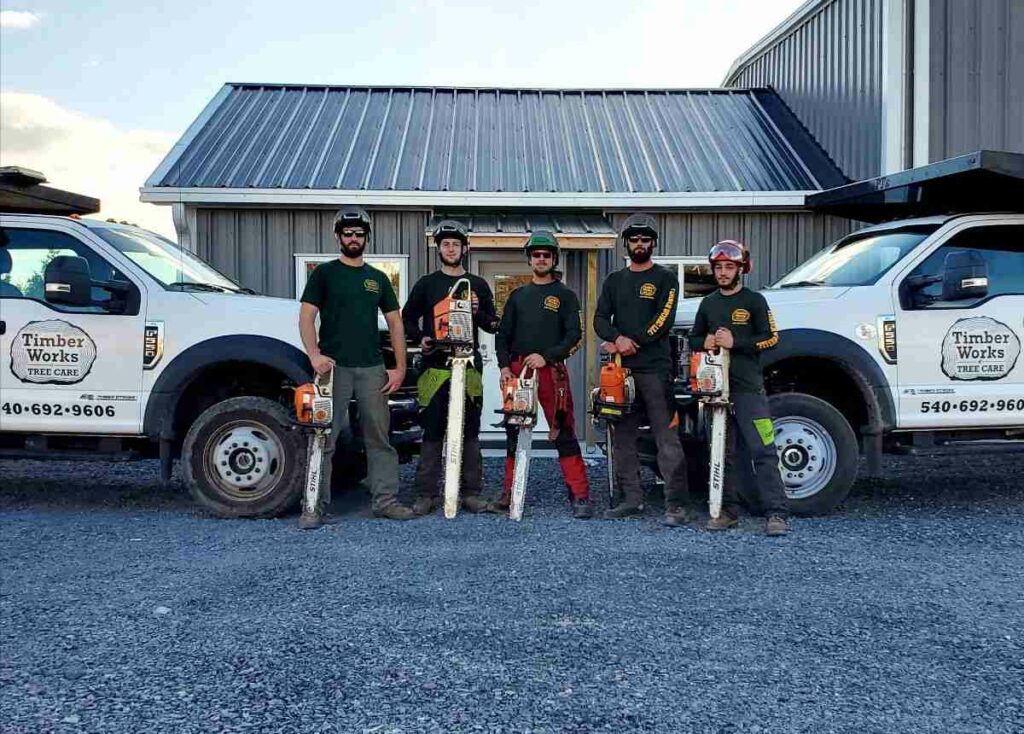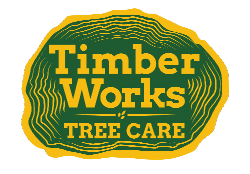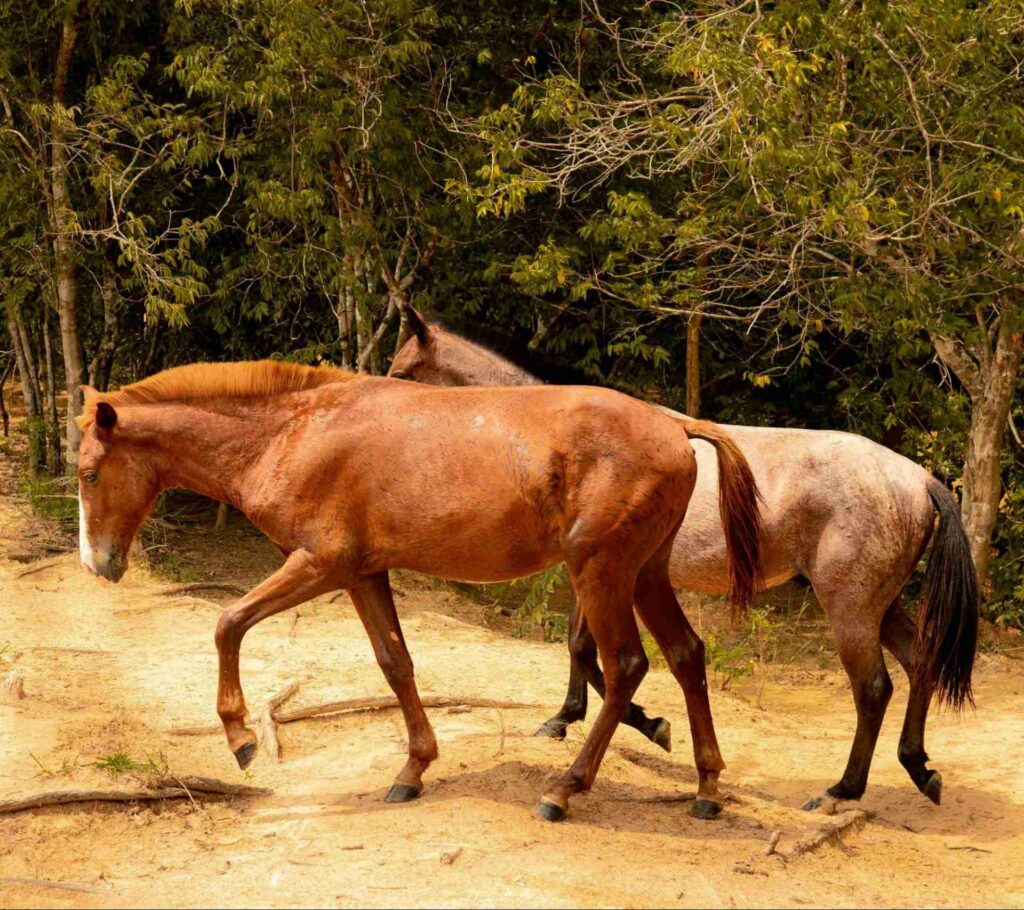Cherry (Prunus) and black walnut (Juglans nigra) trees offer enjoyable beauty and bounty to property owners. However, each poses a deadly threat to horses: cherry trees can cause serious illness while black walnuts may inflame horse tissue. If you own horses, or they dwell on your property, hire a professional tree service to remove these trees from the area.
Timber Works Tree Care offers numerous residential and commercial services in The Plains, VA. Our certified and insured team prioritizes excellent customer service and project delivery. We have a fully trained team of tree specialists to complete each service as well as tree inspection experts. Contact us today at (540) 692-9606.
Below, we detail the specific dangers that these trees present to horses:
Cherry Trees
When ingested, the leaves and twigs of cherry trees can be fatal to horses. The leaves and twigs contain a form of cyanide called prunasin, which prevents the cellular intake of oxygen from absorption in the bloodstream.
Additionally, cyanide poisoning causes an elevated heart rate in horses. Symptoms include excitement, weakness, difficulty breathing, convulsions, dilated pupils, coma, and respiratory failure. Treatment can be administered to eliminate the cyanide if the horse is diagnosed soon after poisoning.
So, try re-planting cherry trees a safe distance from your horse pens and pastures. Identify cherry trees on your property by their leaves, which are jagged, oval, and have an upward-facing tip. You may also recognize cherry trees by their pink and white blossoms in the spring. However, since their shape and bark can vary by variety, it is best to have them identified by a tree company.
Black Walnut Trees
The wood, nuts, leaves, pollen, and bark of walnut trees contain juglone, a substance that is toxic to horses. Laminitis, or inflammation of the hoof tissue, results from exposure or ingestion. It causes swelling in the lower legs, lethargy, rocking, and shifting of weight to the hind legs. While infected horses can recover from laminitis with immediate treatment, healing takes them quite a long time.
You can identify black walnut trees by their pinnate leaves—or leaves arranged on either side of the stalk—as well as a round, open, low-branching crown. They also produce nuts—yet do so at 12-15 years of age, which makes them an unreliable marker.
Horses should not have access to black walnut trees. To prevent your horses from becoming infected, have nearby walnut trees removed by a tree removal company.
Timber Works Tree Care: Effective Tree Service in The Plains, VA

Timber Works Tree Care can handle your tree service needs in The Plains, VA. We are committed to providing safe, quality, and timely tree care solutions. Our services include tree trimming, forestry mulching, brush clearing, tree removal, stump grinding, and emergency tree removal. Contact us at (540) 692-9606 for a free estimate.







